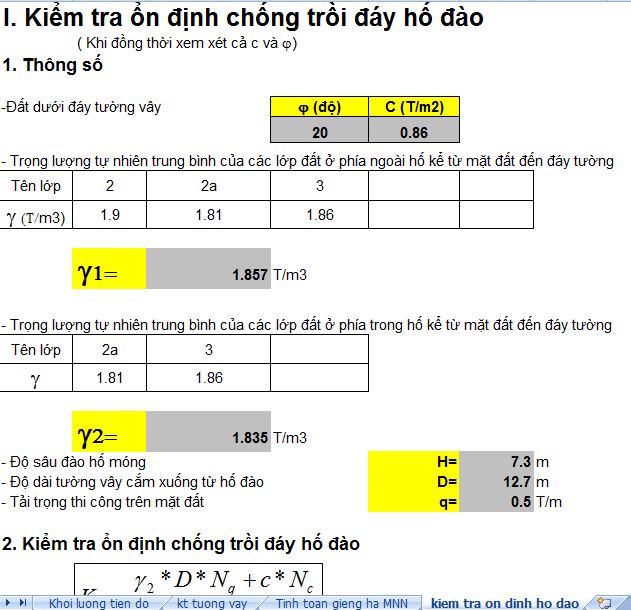Topic Why is my federal return 0: If you find that your federal tax return is showing a total of zero, it can actually be a positive outcome. This means that you have managed your taxes efficiently, not owing any additional balance or expecting a refund. It is a clear indication that you have paid exactly what was required and there is no need for any further adjustment. This can be seen as a sign of good financial planning and compliance with your tax obligations.
Table of Content
- Why is my federal return showing a zero balance?
- What does it mean if my federal return is zero?
- How can I determine if my total tax on Form 1040 is zero?
- YOUTUBE: How much difference does claiming 1 or 0 make?
- Is having a federal return of zero possible?
- Why would someone have a federal return of zero?
- What does it mean to neither owe a balance nor receive a refund?
- How does withholding affect my federal return?
- Can I still get a federal return of zero if I had zero taxes withheld?
- Are there any advantages to having a federal return of zero?
- What are the possible implications of a federal return of zero?
Why is my federal return showing a zero balance?
There are several potential reasons why your federal return may show a zero balance. Here are a few possibilities:
1. Total Tax Paid: If the line labeled \"total tax\" on your federal tax return (Form 1040 or Form 1040-SR) is zero, it means that you didn\'t owe any taxes for the year. This could be due to multiple factors, such as having a low income, taking advantage of tax deductions and credits, or having taxes withheld from your income throughout the year that fully cover your tax liability.
2. Withholding: If you had no taxes withheld from your income throughout the year, it\'s possible that you don\'t have any refund to receive because your tax liability has already been fully paid. This often occurs when someone is self-employed or has income sources that do not require tax withholding.
3. Balanced Income and Deductions: Another reason for a zero federal return balance could be that your income and deductions perfectly balance out. This means that the total amount of income you earned is equal to the total amount of deductions you claimed, resulting in no tax liability.
It\'s important to note that these are general explanations, and individual circumstances can vary. It is recommended to review your tax return in detail, considering all sources of income, deductions, and credits, to fully understand why your federal return is showing a zero balance. If you\'re unsure or have specific questions, it\'s always a good idea to consult with a tax professional or seek assistance from the IRS.
READ MORE:
What does it mean if my federal return is zero?
If your federal return is zero, it means that you neither owe any taxes nor are you eligible for a refund from the federal government. This situation usually occurs when you have paid exactly the right amount of taxes throughout the year, either through withholding from your paycheck or through estimated tax payments.
Here are some possible reasons for your federal return being zero:
1. Total Tax Deductions: If the line labeled \"total tax\" on your Form 1040 or 1040-SR is zero, it means that you have claimed enough deductions and credits to reduce your taxable income to zero. This could be due to various factors such as business expenses, itemized deductions, or tax credits.
2. Proper Tax Withholding: If you have paid the correct amount of taxes throughout the year via paycheck withholdings, your federal return may be zero. This usually happens when you accurately filled out your W-4 form and selected the appropriate number of allowances. By doing so, you ensured that the correct amount of taxes was withheld from your income, resulting in a zero balance at tax time.
3. No Taxable Income: If your total income falls below the threshold for taxable income, your federal return may be zero. Generally, if your income is below the standard deduction amount for your filing status, you won\'t owe any federal taxes. For example, in 2021, the standard deduction for a single individual under the age of 65 is $12,550. If your income is lower than this amount, your federal return will likely be zero.
It is important to note that a zero federal return does not necessarily mean you had no income or financial activity. It simply means that your tax liability has been reduced to zero due to various factors.
How can I determine if my total tax on Form 1040 is zero?
To determine if your total tax on Form 1040 is zero, you can follow these steps:
1. Obtain a copy of your Form 1040 or Form 1040-SR, which are the U.S. Individual Income Tax Return forms.
2. Look for the line labeled \"total tax\" on either form. This line is usually found near the bottom of the first page of the form.
3. Check the amount listed on the \"total tax\" line. If the amount is zero or shows no tax liability, then your total tax is indeed zero.
4. It\'s important to note that having a total tax of zero means that you either had no taxable income or you had enough deductions and credits to completely offset your tax liability.
5. If you had no tax liability, this may be because your income is below the minimum threshold for owing federal income tax, or you took advantage of various deductions and tax credits that lowered your tax liability to zero.
6. If you find that your total tax is zero, it means that you do not owe any additional taxes and you may not be eligible for a federal tax refund either.
Remember that tax situations can be complex, so it\'s always a good idea to consult a tax professional or use tax software to ensure accurate filing and to maximize any potential deductions or credits available to you.

How much difference does claiming 1 or 0 make?
\"Discover the fascinating difference between two popular cooking methods in our latest video! Join our expert chef as he showcases the unique flavors and techniques that set these two techniques apart. Get ready to enhance your culinary knowledge and elevate your cooking skills!\"
Is having a federal return of zero possible?
Having a federal return of zero is possible if the amount of total tax on your Form 1040 or Form 1040-SR is zero. This can occur if you had no tax liability for the tax year, meaning your income was below the taxable threshold, you had enough deductions and credits to offset your tax liability, or you had tax withheld throughout the year that covered your tax liability.
If your total tax was zero, it means that you neither owe any additional tax nor are you entitled to a refund. This can happen when your tax liability is fully covered by the tax withheld from your paychecks throughout the year. In this case, you have paid exactly the amount of tax you owe, resulting in a federal return of zero.
It\'s also worth noting that if you had zero tax withheld from your paycheck and your total tax is zero, you won\'t receive a refund because there was no excess tax withheld to be refunded.
So, in summary, having a federal return of zero is possible if your total tax liability is zero, which can occur if you had no tax liability, your deductions and credits fully offset your tax liability, or your tax withheld throughout the year covers your tax liability.
Why would someone have a federal return of zero?
A person can have a federal return of zero for several reasons. Here are some possible explanations:
1. Total Tax Was Zero: If the line labeled \"total tax\" on the individual\'s Form 1040 or Form 1040-SR is zero, it means they didn\'t owe any tax for the year. This could happen if their income falls below the threshold requiring federal income tax, or if they had enough deductions and credits to reduce their tax liability to zero.
2. Exact Tax Payment: If an individual paid exactly the right amount of taxes throughout the year, either through withholding from their paycheck or estimated quarterly payments, they may not owe any additional tax or receive a refund. This is often the case for individuals who carefully manage their tax payments to avoid overpaying or underpaying.
3. Insufficient Withholding: If someone had zero taxes withheld from their income throughout the year, either due to a high number of allowances, exemptions, or low wages, they may not have any taxes to be refunded. In this case, they have already received their full income, and no tax funds were withheld.
4. Multiple Jobs or Spouse\'s Income: If an individual has multiple jobs or their spouse has income, the total amount of federal tax withheld from their paychecks may be spread out across multiple employers. This can result in a lower overall withholding from each job, potentially leading to a zero federal return.
It is important to note that having a federal return of zero does not necessarily indicate a financial problem or mistake. It simply means that the individual\'s tax situation resulted in neither owing additional tax nor receiving a refund at the end of the year.
_HOOK_
What does it mean to neither owe a balance nor receive a refund?
When you neither owe a balance nor receive a refund on your federal tax return, it means that you have paid exactly the right amount of taxes throughout the year. This usually happens when you have correctly estimated your tax liability and made the appropriate tax payments.
To understand this in more detail, let\'s break it down step by step:
1. First, it\'s important to know that when you earn income, you are required to pay taxes on that income to the government. This is typically done through various withholding taxes, such as income tax withholding from your paycheck or estimated tax payments if you are self-employed.
2. Throughout the year, the taxes you have paid are being credited towards your total tax liability, which is calculated based on your income, deductions, and credits. This total tax liability represents the amount of tax you are legally obligated to pay.
3. When you file your federal tax return, you report your income, deductions, and credits to determine your actual tax liability. This is done using forms such as Form 1040 or Form 1040-SR.
4. If your total tax liability is equal to the amount you have already paid in taxes throughout the year, then you neither owe a balance nor receive a refund. In other words, you have paid exactly the right amount of taxes to the government.
This situation can occur if you have accurately estimated your income and deductions, and have made the appropriate tax payments throughout the year. It typically means that you have neither overpaid nor underpaid your taxes, resulting in a tax balance of zero.
It\'s worth noting that achieving a zero balance doesn\'t necessarily mean that you have optimized your tax situation. It simply means that you have fulfilled your tax obligation by paying the correct amount. Depending on your financial situation, it may be beneficial to seek professional advice or do further research to ensure you are maximizing any potential tax deductions or credits that may be available to you.
Why do I owe taxes if I claim 0 exemptions? Why do I owe the IRS so much in taxes this year?
\"Want to learn how to effectively manage and reduce the amount you owe? Our video provides valuable tips and strategies to pay off debts faster and regain control of your finances. Get ready to explore proven methods that can help you achieve financial freedom and peace of mind!\"
Situations where you are NOT required to file a tax return
\"Explore various real-life situations and learn how to navigate through them with confidence! Our video offers practical advice and solutions to common challenges, from dealing with difficult coworkers to handling unexpected emergencies. Empower yourself to tackle any situation that comes your way and thrive!\"
How does withholding affect my federal return?
Withholding affects your federal return by determining how much of your income is taken out for taxes before you receive your paycheck. Here\'s a step-by-step explanation:
1. When you start a job, you typically fill out a W-4 form, which calculates how much income tax should be withheld from your paycheck based on your filing status, number of dependents, and other factors.
2. The amount of withholding is determined by using the tax brackets and rates provided by the Internal Revenue Service (IRS). These brackets specify the percentage of income that should be withheld for taxes at various income levels.
3. Throughout the year, your employer deducts the calculated amount from your gross pay and sends it to the IRS on your behalf.
4. When you file your federal tax return at the end of the year, you report your total income and calculate your tax liability based on your income, deductions, and credits.
5. If the total amount of tax you paid through withholding is higher than your tax liability, you will be eligible for a refund. This means that you have overpaid your taxes throughout the year, and the government owes you money.
6. On the other hand, if the total amount of tax you paid through withholding is lower than your tax liability, you will need to pay the difference when you file your return. This means that you have underpaid your taxes and have a balance due to the government.
7. If your withholding exactly matches your tax liability, your federal return will be zero, neither owing a balance nor receiving a refund. This indicates that you have paid the correct amount of taxes throughout the year.
It\'s important to note that withholding is just an estimation of your tax liability and may not perfectly match your actual tax due. Factors such as changes in income, deductions, and credits can affect your final tax liability. Adjusting your withholding allowances on your W-4 form or making estimated tax payments can help ensure that your withholding aligns more closely with your actual tax liability.
Can I still get a federal return of zero if I had zero taxes withheld?
If you had zero taxes withheld and your total tax liability for the year is also zero, then it is possible to receive a federal return of zero. This means that you paid exactly the amount of taxes you owed throughout the year, resulting in no additional tax liability or refund. To determine if your total tax liability is zero, you can refer to the line labeled \"total tax\" on your Form 1040 or Form 1040-SR. If this line shows zero tax owed, then you will not be eligible for a federal tax refund.
Are there any advantages to having a federal return of zero?
Having a federal return of zero (meaning neither owing a balance nor receiving a refund) can have some advantages. Here are a few possible reasons:
1. Financial Planning: When you have a federal return of zero, it indicates that you have accurately estimated and withheld the correct amount of taxes throughout the year. This suggests that you have a good handle on your personal finances and are effectively managing your income and expenses.
2. Cash Flow: If you receive a large tax refund every year, it means you have been overpaying on your taxes throughout the year. While receiving a lump sum refund might seem like a windfall, it\'s essentially an interest-free loan to the government. By minimizing your refund and adjusting your withholdings, you can have more cash flow throughout the year, which you can use for other purposes such as saving, investing, or paying down debt.
3. Simplified Tax Filing: If your federal return is zero, it means your tax situation is relatively straightforward, and you don\'t have a large tax liability or complex deductions to consider. This simplifies the tax filing process, saving you time and potentially reducing the chance of errors or audits.
4. Financial Stability: Maintaining a federal return of zero can be an indicator of financial stability. It suggests that you have a steady income, appropriate withholdings, and are not facing a significant tax liability or financial distress.
5. Avoiding Penalties: If you consistently owe a large tax balance at the end of the year, you may have to pay penalties and interest for underpayment of taxes. By having a federal return of zero, you minimize the risk of incurring such penalties.
It\'s important to note that these advantages may vary depending on individual circumstances, and it\'s always a good idea to consult with a tax professional or financial advisor for personalized advice.

What are the possible implications of a federal return of zero?
A federal return of zero can have several implications, which may vary depending on the individual\'s specific circumstances. Here are a few possible implications:
1. Low Taxable Income: A federal return of zero may indicate that the individual\'s taxable income for the year was very low or non-existent. This could result from having a low-income job, extensive deductions or credits that reduce their taxable income, or possibly being exempt from paying federal income tax altogether.
2. Break-Even Tax Situation: If the individual\'s total tax liability for the year matches the amount of tax withheld from their paychecks or other sources of income, they will end up with a federal return of zero. This means they neither owe a balance nor receive a refund. It suggests that their tax withholding was accurately calculated, resulting in a break-even point where they effectively paid their taxes throughout the year.
3. Overpayment and Withholding Adjustments: In some cases, individuals may have overpaid their taxes throughout the year, resulting in a federal return of zero. This could happen if they had excess tax withholdings from their paychecks or made higher estimated tax payments. To avoid this, individuals might consider adjusting their withholding or estimated payments to have more accurate tax payments throughout the year.
4. Tax Planning and Optimization: Some individuals actively strive to achieve a federal return as close to zero as possible as part of tax planning strategies. This is done to avoid giving the government an interest-free loan throughout the year (in the form of overpayment) or to avoid owing a large balance at tax time. By optimizing their tax situation using deductions, credits, and proper withholding, individuals can fine-tune their tax liability to align with their financial goals.
It\'s important to note that these implications are not exhaustive, and the specific circumstances of each taxpayer may differ. It\'s always advisable to consult with a tax professional or use tax software to ensure accurate tax preparation and understand the implications of a federal return of zero.
_HOOK_
READ MORE:
No federal taxes deducted
\"Uncover the secrets to maximizing your tax deductions in our comprehensive video guide! Our expert tax advisor will walk you through the process and highlight key deductions you may be missing out on. Start saving more money today and ensure you\'re making the most of your eligible deductions!\"












